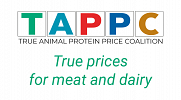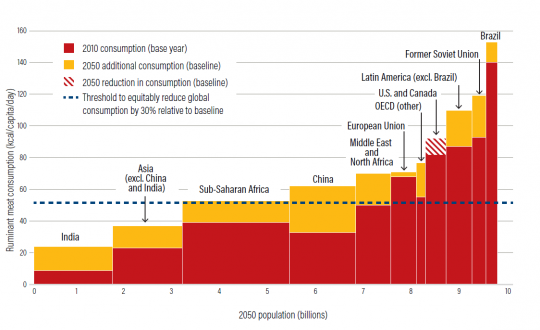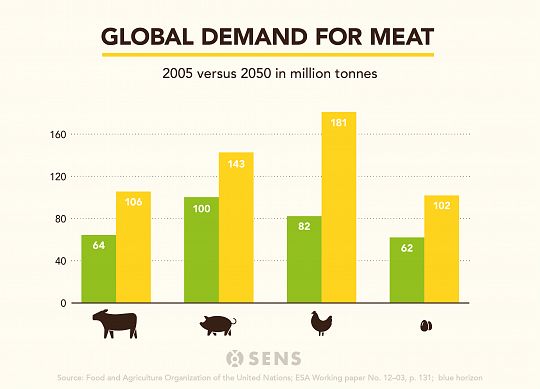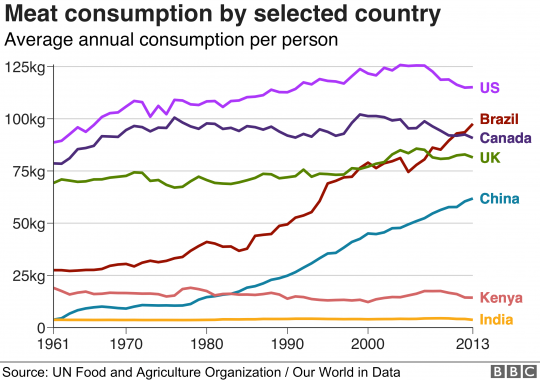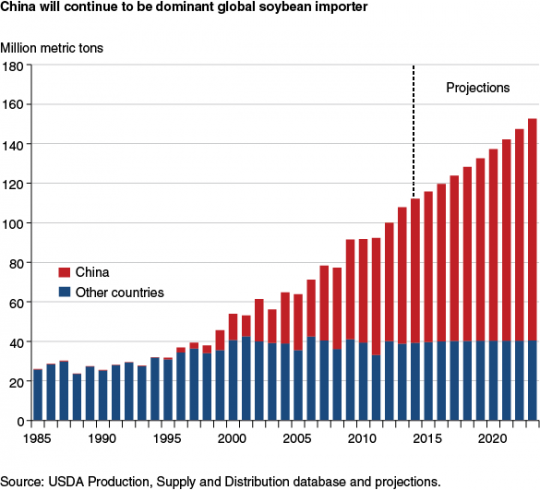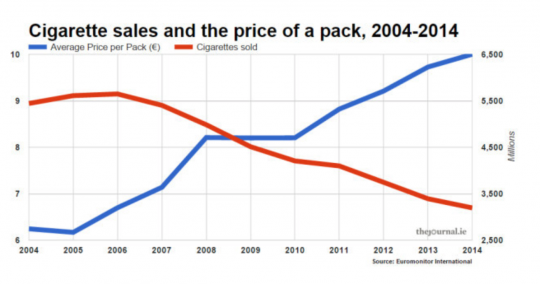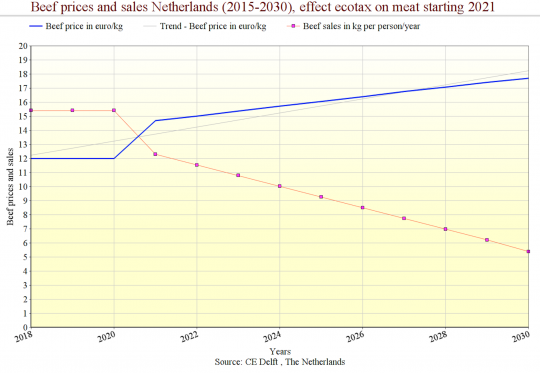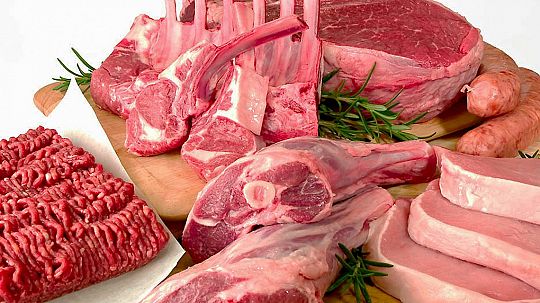COP25 meeting - Meat & diary sector: taxes, CO2 pricing; reduction
Meat and Dairy: taxes & fair pricing of CO2 The need for global reduction plans
Meeting Madrid, Climate Summit COP25, Monday 9th December 2019, 14-15 h. Room 2, Hall 9
13-13.30 h. Preparation (all welcome), Hall 4 coffee place, near South entrance
IFEMA, Av. Del Partenon nr. 5. Registration: info@tappcoalition.nl
See powerpoint presentation Marco Springmann, Oxford University with his research on meat taxation policy options in 140 countries for health reasons and reduction of greenhouse gasses (including proposals for subsidies on vegetables and fruits):
Emissions pricing of food commodities: climate change mitigation potential and global health impacts
See powerpoint presentation Jeroom Remmers, Director TAPP Coalition on the proposal for UN/global CO2 agreements for the meat & dairy sector and on the Dutch case of Fair Meat Pricing including all environmental costs of beef, pork and chicken meat (greenhouse gas, nitrogen, biodiversity loss) and fair prices for farmers:
Meat and Dairy: taxes & fair pricing of CO2 The need for global reduction plans
Monday, 09 Dec 2019
14:00— 15:00, Hall 9; Room 2
Organisers: TAPP Coalition (True Animal Protein Pricing Coalition)
Mr. Jeroom Remmers (director). info@tappcoalition.nl website: Tappcoalition.eu
Compassion in World Farming
Duncan Williamson (Global Head of Policy and research, former WWF UK) Duncan.Williamson@ciwf.org
+44 14 83861639
FAIRR
Jo Raven, engagement manager. jo.raven@fairr.org
Oxford University
Marco Springmann; Health tax on meat 140 countries email: marco.springmann@dph.ox.ac.uk
Proveg International
Raphael Podselver. raphael.podselver@proveg.com
The Greens, Europe MEP
Francisco Guerreiro Vice chair Committee on Agriculture and Rural Development
francisco.guerreiro@europarl.europa.eu
Speakers:
• Jeroom Remmers, the Dutch case for a meat tax – fair meat prices (male)
• Duncan Williamson (male)
* Raphael Podselver (male).
Video conferencing:
• Marco Springmann (Oxford University, meat taxes for health (male)
• Jo Raven, FAIRR (female), investors perspective on meat taxes for lower financial risks.
Background
As meat and dairy consumption is growing worldwide, related greenhouse gas emissions and deforestation for animal food are growing too. It is expected that after 2050, the global carbon budget is used completely by greenhouse gasses relating to animal farming, if business as usual will continue.
While the aviation sector at least tries to reduce emissions and is working towards climate neutral growth after 2020, the UN and its member states do not have coordinated plans for the meat and dairy industry to reduce their emissions. While CO2 taxes are introduced nearly everywhere in the world, CO2 pricing or taxations for meat or dairy is completely absent.
According to the UN’s IPCC, agriculture, forestry and other land use accounts for 24% of greenhouse gases. The role of animal farming ranges from 6-32%: the difference, according to the Meat Atlas, “depends on the basis of measurement”. Should it just be livestock, or should it include a whole lot of other factors like deforestation? This has generated an energetic discussion around extensive versus intensive farming, and regenerative farming.
What about the giant companies that dominate the sector? A 2017 landmark study found that the top three meat firms – JBS, Cargill and Tyson – emitted more greenhouse gases in 2016 than all of France.
The UN Food and Agricultural Organisation has a huge collection of data, and has also published reports like the groundbreaking Livestock’s long shadow.
The Meat Atlas. Research institutes are Sustain; The Institute for Agriculture and Trade Policy; Brighter Green; Sustainable Food Trust; IPES-food.
Several meat pricing reports have been published, e.g. Health tax on meat, by Marco Springmann, Oxford University, a proposal for a meat tax in 140 countries.
Goals for this event :
1) to share information on meat taxes and CO2 pricing for food (meat/dairy) and discuss options for strategies how to introduce those taxes and CO2-prices.
2) to discuss global UN initiatives on food and agriculture and climate change.
3) Discuss CO2 reduction options for Food & Agri in Europe, see https://tappcoalition.eu/policy-proposals ; the Dutch case of ‘fair meat pricing’ a consumer tax on meat of ca. 34 eurocent per 100 gram, based on CO2 and environmental costs; revenues to be used for sustainable farming, lower VAT on vegetables, fruits and plant based meat, and compensation for low income households. A majority of Dutch public supports it.
4) Start new and empower existing partnerships and coalitions on meat taxation and CO2 pricing of food.
